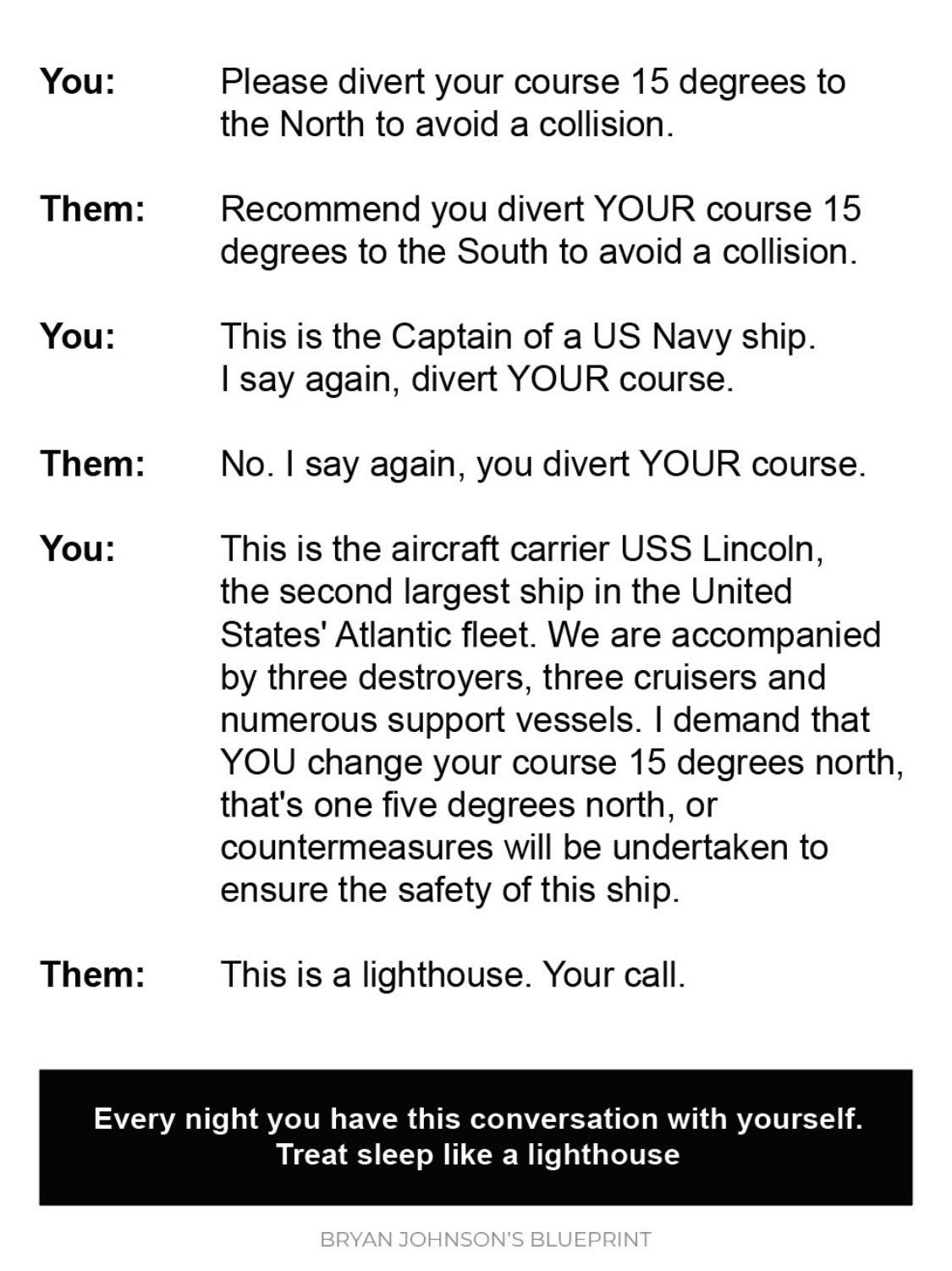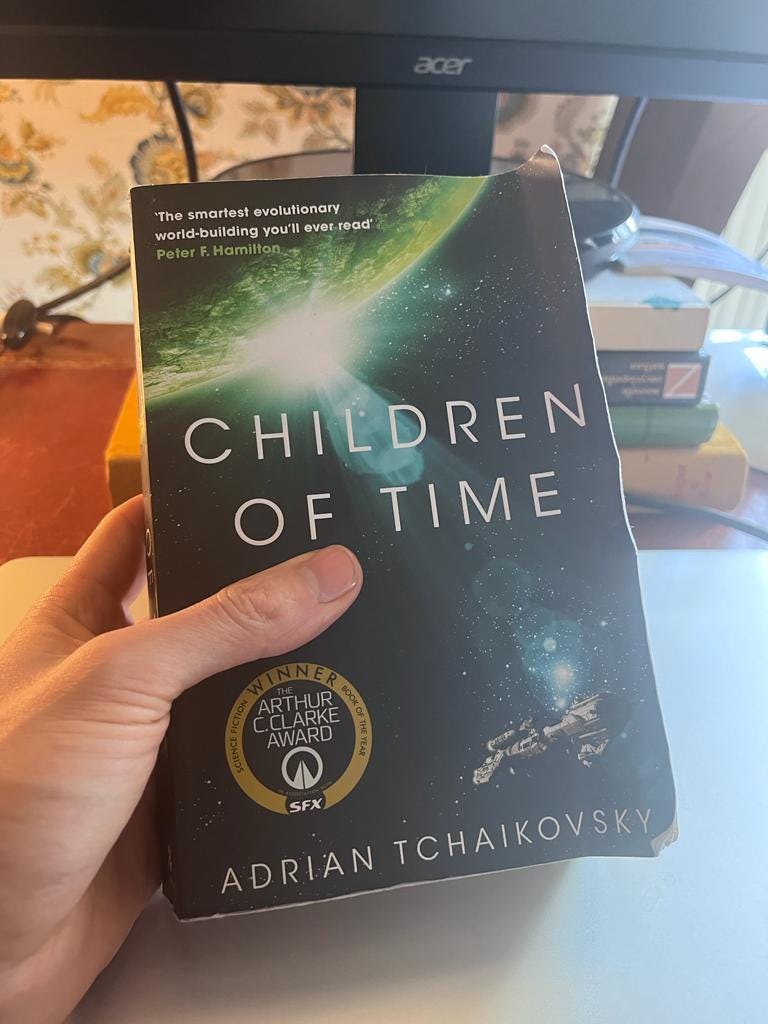Fighting for your sleep / The President Of United AIs / The Last of Us / Children of Time
Sleep is a lighthouse.
I’ve been following Bryan Johnson (ex-founder at Braintree, sold to Paypal for $800m) in his quest for perfect health and rejuvenation. He’s investing $2m per year in a team of 20 age-reversal scientists to use his body as the prototype for the next major sapiens update. His reason for doing this is rarely obvious in the media so here’s my take: our brains are overwhelmed with thousands of daily micro-choices like what to eat or when to sleep, leaving too much room for our primitive selves to make mistakes. Clearer mind, better decisions. He plans to automate protocols like diet or exercise to build a human template that can navigate any version of the future and who can co-exist with your new friendly AI neighbour. (PS: those who aren’t overwhelmed by what’s going on in that space are in for a surprise). Here’s a clip where he explains himself.
Johnson is open-sourcing his Blueprint for us to try his routines while he goes hiking on the frontiers of health optimisation (see how harsh he’s on himself). One of his principal tenets is sleep: lights are out by 8.30 pm in his household, no matter what. I struggle to sleep early so I printed out the following guideline from his feed:
What’s wrong with us?
Tim Urban and his Wait but Why blog posts have been sorely missed. After 6 years of absence, he’s back with an ebook to lay it on us, once again. What’s wrong with us? provides a simple lens to understand how our species’ out-of-date brains are driving us into a hell hole. He describes the constant fight happening between our higher mind (conscious, deliberate) and our primitive one (unconscious, designed for survival) and its impact on society. I absorbed the Kindle sample instantly and I’m now waiting for a spare morning to read the whole thing. I do not recommend reading this at night, as it will keep you up.
AI’s new self-proclaimed president
This statement from OpenAI CEO Sam Altman left me with a weird taste in my brain. Speaking like the new president of the ‘AI state’, he’s drafting the contours of a revolution no one is ready for, while he’s got keys of the cage. He pledges to launch AI tech slowly to control the landing. It’s an operation which has, in his words, “boundless downside and boundless upside”. This is the kind of progress that cannot be stopped. We’re going to have to witness this whether we like it or not, so we might as well try to enjoy it. Hopefully, it’s not a horror flick. Most of us are probably wildly unprepared for what’s coming. AI leaders are discreetly admitting that they are too.
The Last of Us
I’ve been revisiting the world of the Last of Us through its HBO TV adaptation. I played both PlayStation games and immersing myself again in this dire world was oddly compelling. The music and atmosphere are unique and unexpected in this genre. This is not about zombies but about human nature. It’s crude, beautiful and feels real. It’s not a surprise success since its show-runner, Craig Mazin, also ran Chernobyl, another HBO hit. If you’re limited in time, try Episode 3, “Long, Long Time” which features an award-winning performance by Nick Offerman.
Children of Time
Children of Time by Adrian Tchaikovski is one of my library’s proudest finds. This book from 2015 reminds me of Asimov’s Foundation series with a biotech edge. I don’t want to spoil the synopsis but here’s a taste. Mankind’s last survivors are on a journey to find a new home, while light years away a synthetic virus accelerates the evolution of a specific species on a terraformed planet. The staff manning this expedition use “suspension” to cryopreserve themselves through time, until their skills are required at critical timestamps of their ride. The book surfs across eras comparing two civilisations evolving side-by-side and eventually colliding. It’s quite rare for me to discover a prolific, contemporary sci-fi author who can project mankind beyond immeasurable eras. I wrote my main takeaways from the book in this thread.



Awesome ! Thanks PJ Baudoin!
Loved it ! Can’t wait for the next one